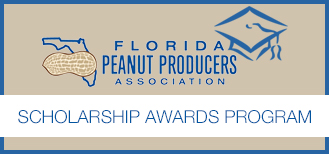The annual Alabama-Florida Peanut Trade Show is fast approaching. This year’s show will be held Thursday, Feb. 11, 2016, at the National Peanut Festival Fairgrounds, located on Hwy. 231 South in Dothan, Alabama.
Sponsored by the Alabama Peanut Producers Association and the Florida Peanut Producers Association, the one-day event offers farmers a full day to view the products and services of more than 80 exhibitors and a day of education. The show opens at 8:30 a.m. and will continue until noon.
Peanut growers who attend will not only be able to fine tune their farming operations, but will have a chance to win prizes valued at thousands of dollars.
This year’s grand prize is being sponsored by Kelley Manufacturing Company who is offering the use of a new 6 Row Peanut Combine on the grand prize winner’s farm for the 2016 harvesting season, (valued at $15,000), with the option of purchasing the combine through an authorized KMC dealer with $15,000 off the list price.
In lieu of the 6 Row Combine the winner can choose the use of another KMC Peanut Harvest Implement with a 10% discount off the list price for purchase. The winner must be certified as a peanut grower with an FSA farm number, and must be present to win.
Following the catered lunch, a seed seminar will be held.
Topics and guest speakers for the seed seminar will be: Varieties Currently in Production and on the Horizon – Dr. Bill Branch, professor/peanut breeder, University of Georgia, and Dr. Corley Holbrook, peanut breeder, USDA/ARS; Current Breeding Research update – Dr. Marshall Lamb, National Peanut Research Lab/ Auburn University; The Peanut Genomic Initiative – Dr. Steve Brown, The Peanut Foundation.
All peanut growers are invited and encouraged to attend. For more information on the show, including exhibit space availability, contact:
Teresa Mays at APPA (334) 792-6482 or Sherry Saunders – FPPA (850)526-2590
– See more at: http://www.alpeanuts.com/al-fl-peanut-trade-show-feb-11-2016/#sthash.n2k9QXte.dpuf




